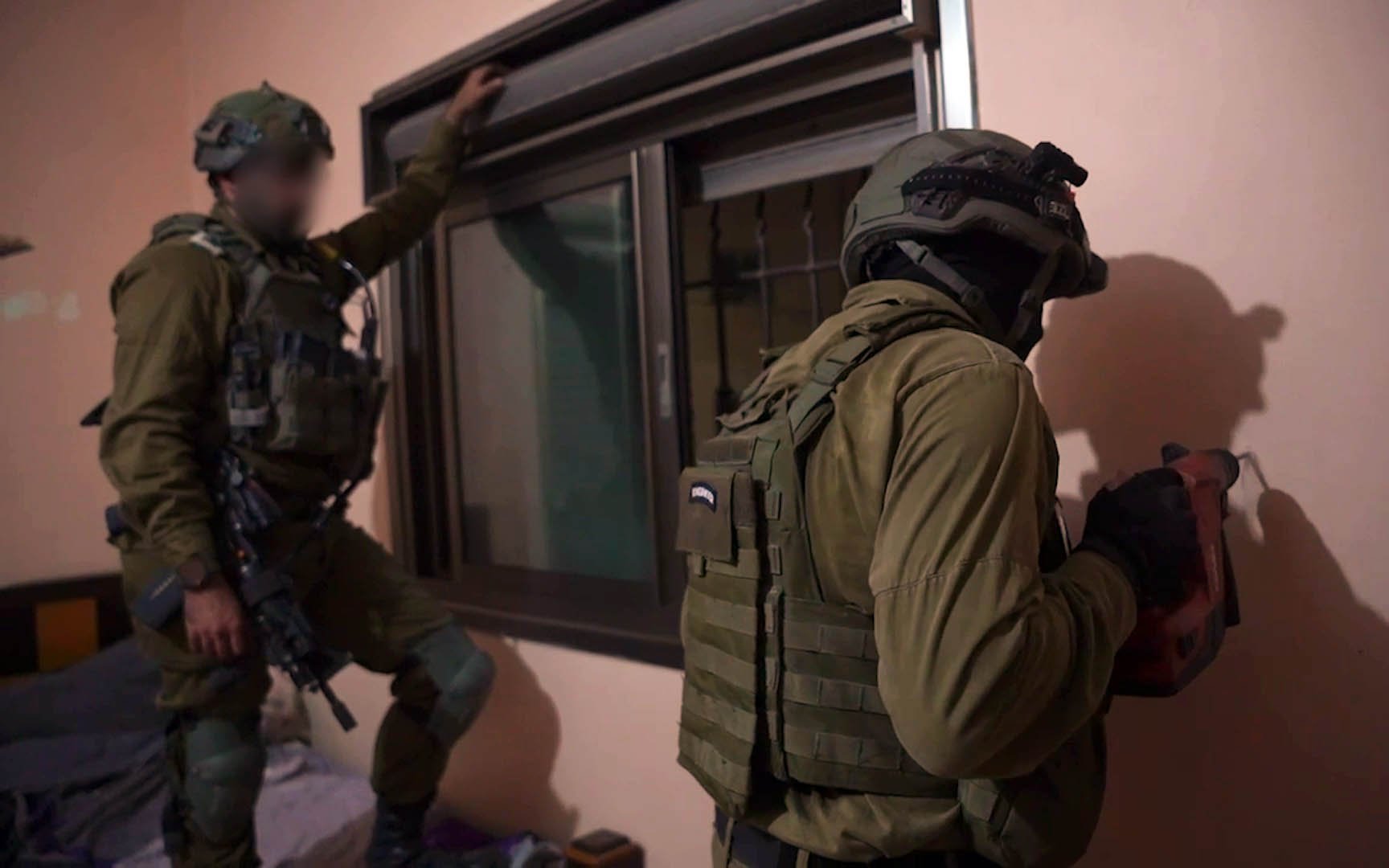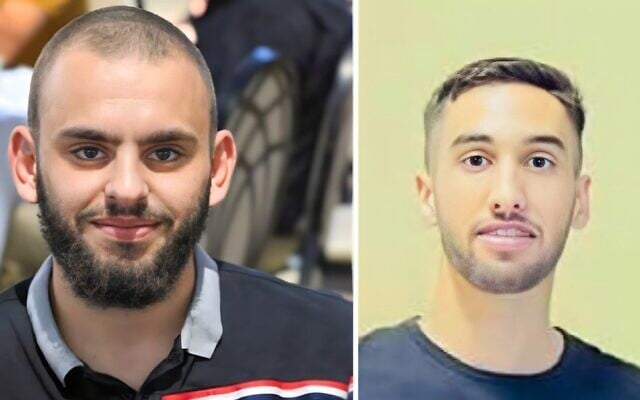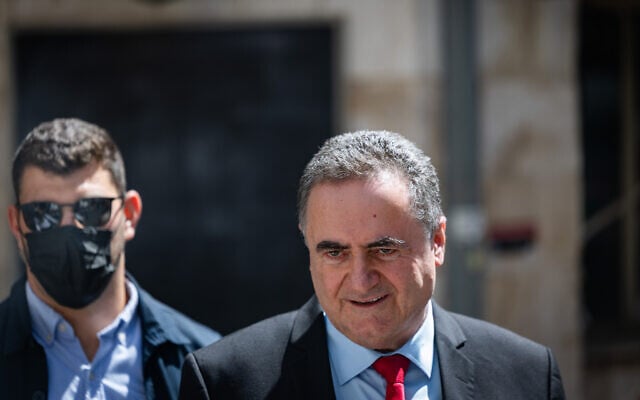


Israel Defense Forces engineers on Tuesday surveyed the homes of two Palestinian terrorists who carried out a deadly shooting attack in Jerusalem the day before, to prepare for demolition.
The two gunmen, Mohammad Taha, 21, from Qatanna, and Muthanna Amro, 20, from Qubeiba, murdered six people and wounded over a dozen others at Ramot Intersection in the capital before they were killed by an off-duty soldier and armed civilians.
As a matter of policy, Israel demolishes the homes of Palestinians accused of carrying out deadly terror attacks, saying the measure is intended as a deterrent.
In addition to mapping the homes in the two villages on the outskirts of Ramallah, the IDF said troops combed several sites and questioned suspects in the area.
Defense Minister Israel Katz ordered authorities to impose “civil sanctions” on the relatives of the two terrorists as well as residents of Qatanna and Qubeiba, appearing to impose collective punishment on Palestinians who are not accused of involvement in or knowledge of the assault.
The move drew pushback from a rights group that asked the attorney general to intervene.
Katz said 750 work and entry permits to Israel would be revoked. Immediate family members of Palestinians accused of terror are barred from working in Israel as a matter of policy, but it is rarer for Israeli authorities to revoke work permits of more distant relatives.
Israeli officials have said the policy is intended to dissuade Palestinians from planning terror attacks, as doing so will harm their extended families’ livelihood. Critics have called it collective punishment.
Katz also said he ordered the demolition of “any illegal structures in the villages,” though it’s unclear what the practical implications would be. Both villages lie in Area B of the West Bank, where Israel has no authority over civil matters such as issuing building permits.
Katz said he ordered the sanctions at the recommendation of defense officials, including the outgoing chief of the Coordinator of Government Activities in the Territories unit, Maj. Gen. Ghassan Alian.
The Association for Civil Rights in Israel (ACRI) called on Attorney General Gali Baharav-Miara to instruct the IDF and the Defense Ministry to refrain from imposing what it said was collective punishment.
“Collective punishment is prohibited under both Israeli law and international humanitarian law. Such actions are war crimes,” ACRI told the attorney general. “We ask you to instruct the Defense Ministry and the army to immediately cease committing war crimes.”
ACRI said it sent a similar letter to Military Advocate General Maj. Gen. Yifat Tomer-Yerushalmi.
The Yesh Din civil rights organization sent similar legal warnings to Baharav-Miara, Tomer-Yerushalmi, and IDF Chief of Staff Lt. Gen. Eyal Zamir on Monday evening following media reports of planned punitive actions by the military against the Palestinian towns where the terrorists came from.
“International humanitarian law absolutely prohibits collective punishment without exception,” the organization stated.
Yesh Din referenced a recent incident in which the IDF uprooted thousands of olive trees in the West Bank village of al-Mughayyir in what appeared to be a reprisal for a shooting attack carried out by a resident of the village.
The Attorney General’s Office declined to comment on the letters.
Meanwhile, Israeli troops razed the home of a Palestinian accused of taking part in a deadly terror attack that killed a child on a bus in the West Bank last year, the military reported.
The attack against a bus headed to Jerusalem on December 11, 2024, killed Yehoshua Aharon Tuvia Simha, 12, and injured three others.
According to the IDF, the attack was carried out by several gunmen, including Thabet Mohammed Masalmeh, whose home in the town of Bayt Awa was demolished overnight.



